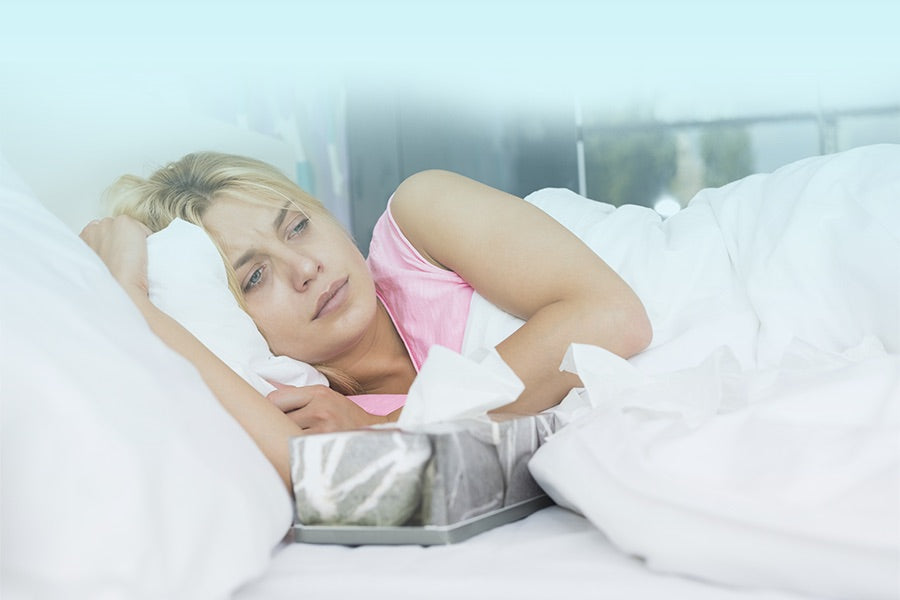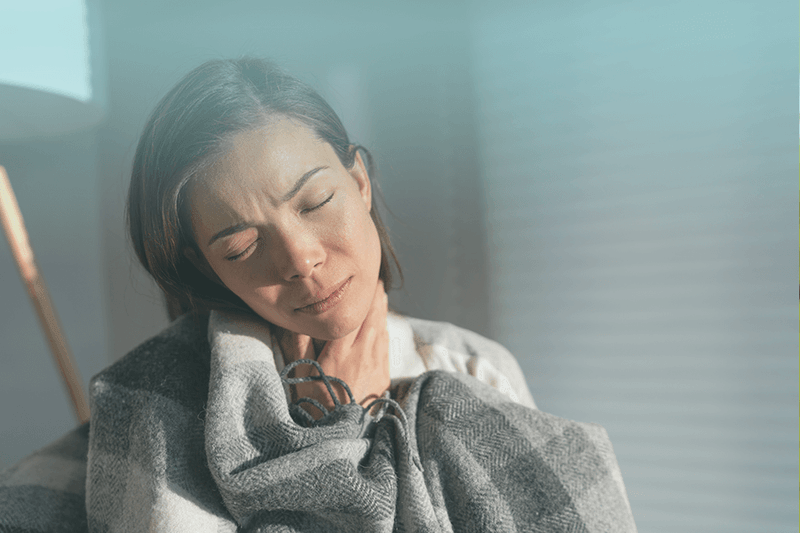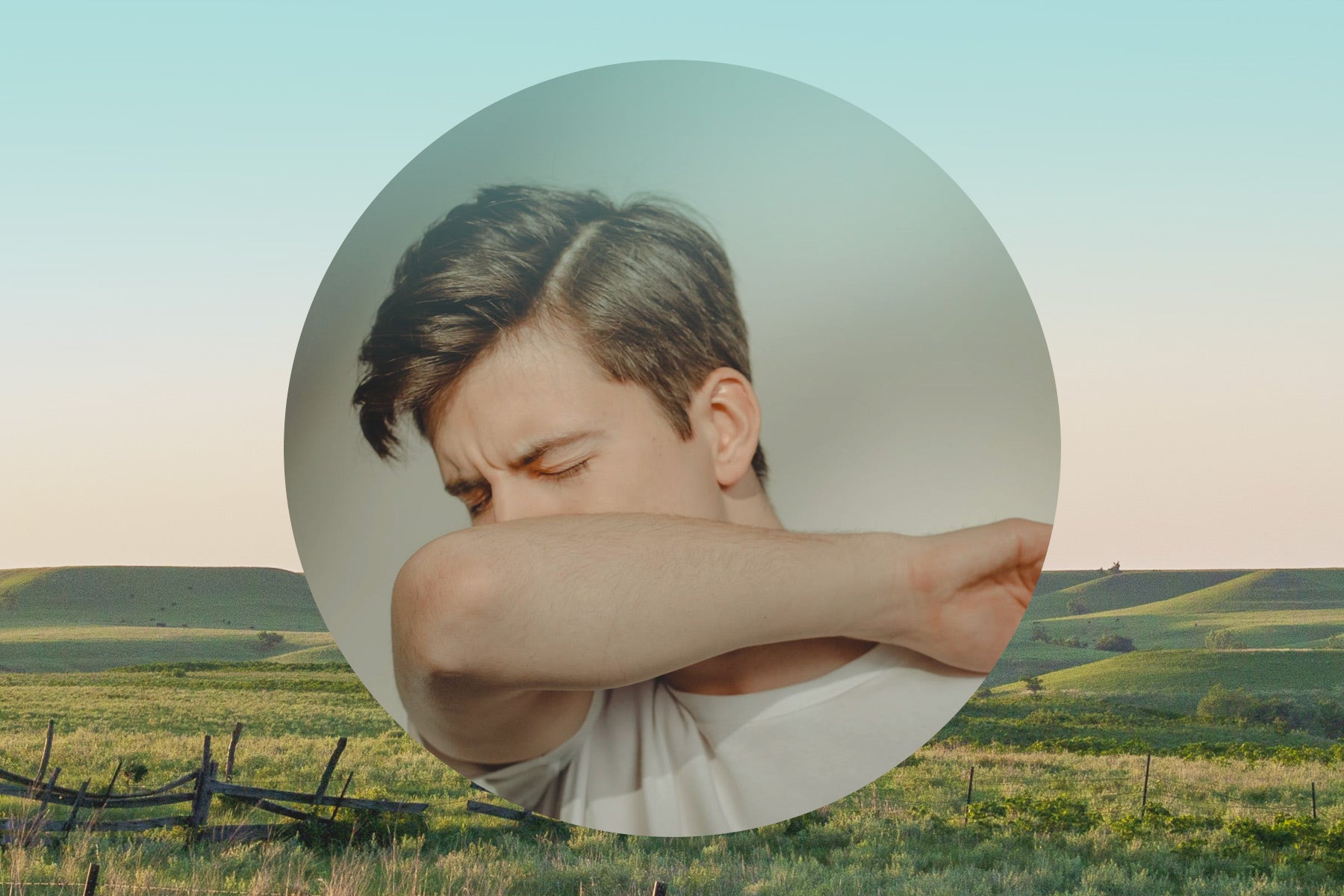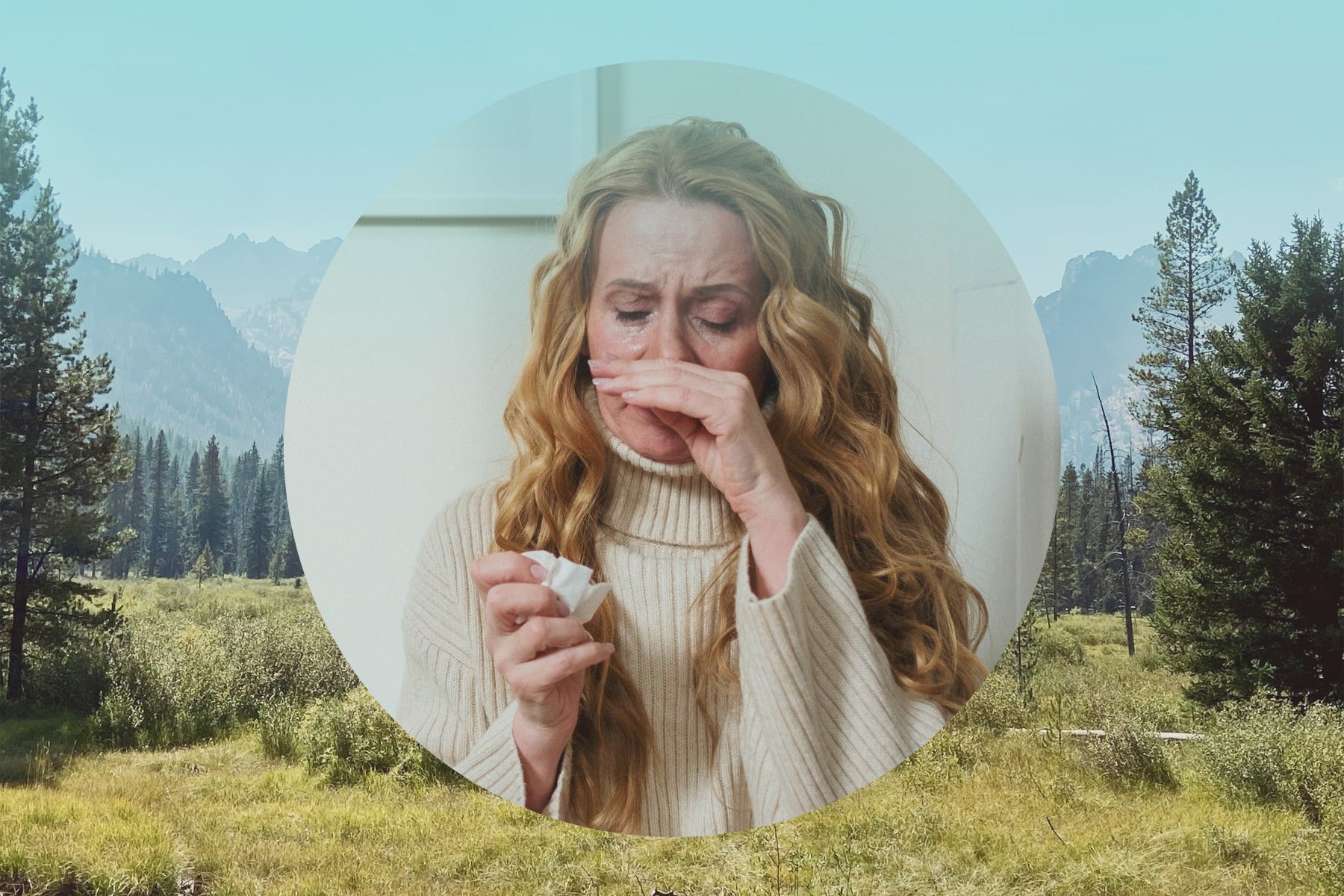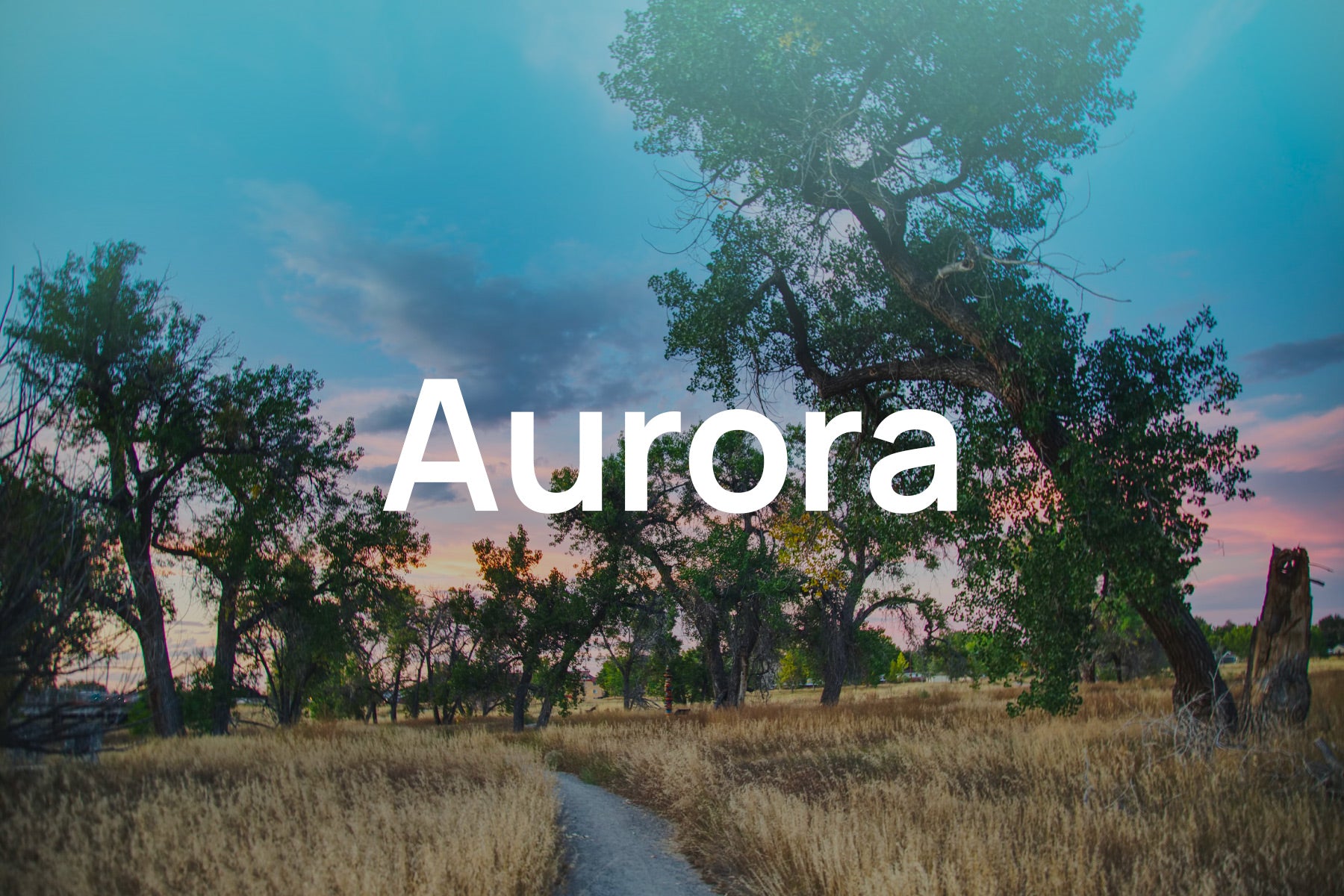
Don’t Let Pollen Allergies in Aurora Hold You Back!
Whether you’re a resident or visitor, Aurora, Colorado, is a city you’ll never want to leave. With ample outdoor spaces and attractive costs of living, this detour from Denver may feel like the perfect escape. For seasonal pollen sufferers, however, things can get tricky!
Pollen Allergies in Aurora, CO - A Problem?
The city of Aurora is home to roughly 400,000 people, known for its nearly 10,000 acres of open space, its 103 recreational parks, and its multi-purpose trails, waterways, and facilities. It’s no wonder this relatively inexpensive municipality is such a hot draw for residents and visitors alike. Once voted “The Most Active City in America,” Aurora gets the people going!
But this high-altitude city, with a net elevation change of ~1,000 feet, can also get your allergies going! Whether you’re exploring its 119 miles of trails, walking your best bud at Grandview Dog Park, or renting a boat at Quincy Reservoir, allergens in Aurora abound!
If you’re experiencing pollen allergies in Aurora, the reasons may be vast and complicated. Fortunately, from small lifestyle tweaks to certain treatments, and even cutting-edge immunotherapy, you can take back control of your life.

What Causes Seasonal Pollen Allergies in Aurora?
The simplest answer is you do. Weather patterns, pollution, and climate change aside, what ultimately triggers your allergy symptoms is your immune system’s reaction to environmental allergens. When you encounter weed or tree pollen, for instance, your body may react, triggering symptoms such as coughing, runny nose, itchy eyes, and even extreme exhaustion.
Aurora’s Weather Contributes to Allergens
The city of Aurora, Colorado - as with Colorado in general - is far removed from major bodies of water, contributing to its dry climate. Additionally, because of its mountainous high elevations, the city typically experiences low-dew-point conditions year-round. This means there is very little humidity.
But that doesn’t mean you won’t get precipitation such as rain and snowfall! After all, Aurora’s climate is semi-arid, not a desert! So, if you’re an allergy sufferer, be aware.
With its four distinct seasons, precipitation changes, and temperature shifts, the city can trigger both seasonal and year-round allergies. When it comes to pollen allergies in Aurora, the best way to prepare is to know your vulnerabilities, and know the weather!
Climate and Pollen Allergies in “The Gateway To the Rockies”
Aurora’s nickname is well-deserved. Nestled among the peaks and pinnacles like many Rocky Mountain cities, the municipality is uniquely situated for weather patterns. As you may know, every season’s weather has an impact on pollen allergies.
Tree pollen typically begins in Aurora’s wintry months, extending through spring as species like Oaks, Junipers, and Elms release their pollen. Meanwhile, grass pollen season typically goes from May to August, with Ryegrass and Kentucky Bluegrass joining the fun. By July, weeds start pollinating and will continue through October. Tumbleweed, Sagebrush, and Ragweed are the main culprits during this period.
Depending on your sensitivities, there’s always something to look forward to!
What Makes Aurora’s Seasonal Pollen Allergens Unique?
Aurora is distinct due, in part, to its location in the Front Range Urban Corridor, which positions the city along the eastern side of the Southern Rocky Mountains. Because of this unique geographical feature, residents of Aurora may encounter everything from sporadic thunderstorms to gnarly blizzards, high winds, and uncharacteristically dry spells. Although generally considered to have a mild climate, the city does deliver more than twice the national average of snowfall, with 62 inches.
Temperatures hover in the low-to-mid 40s during the winter and the low-to-high 80s during June, July, and August. Summers often see thunderstorms during the early evening as well.
Don’t Take a ‘Mild’ Climate for Granted
The dry air and occasional powerful winds can be a problem for circulating pollen. Moreover, while rain may initially remove pollen from the air, it can also stimulate plant growth, creating more pollen in the long run. As snow melts and moisture accumulates between seasons, residents may also experience problems from perennial allergens such as mold.
Of course, with regional and seasonal allergy trends changing, you can never be too sure what to expect each year. If you’re experiencing pollen allergies in Aurora, contact your healthcare provider for potential treatments. Fortunately for you, Aurora is nationally recognized for its healthcare clinics and hospitals. From the Colorado Anschutz Medical campus to the University of Colorado Hospital, the area is teeming with bright medical minds!
How Bad Are Pollen Allergies in Aurora, Colorado?
While pollen allergies may be ‘bad’ for one person, they may be nonexistent for another. Take, for instance, immune sensitivities to common ragweed. Many people may start getting sniffles, a slight cough, or scratchy eyes as autumn settles in. Some people barely notice any symptoms, but have a tough time during the summer months, especially if the temps are soaring and people are mowing their yards, kicking grass pollen into the air.
And then there are perennial allergies. Although the worst of pollen allergies may peak from April to September, year-round allergens don’t care what season it is. Many times, allergy sufferers have symptoms that overlap, uncertain if their problems are caused by pollen or something else.
How to Differentiate Aurora’s Pollen and Non-Pollen Allergies
During icy blasts in Aurora, you may huddle inside, increasing your exposure to allergens such as dust mites, pet dander, cockroaches, and mold spores. Mold may be especially problematic outdoors as well, as seasonal changes lead to decomposing organic materials, like leaves, soil, and other goodies.
Not sure if you’re suffering from pollen allergies in Aurora? Can’t tell the difference between perennial allergy symptoms and a cold or flu?
For starters, both pollen allergies and perennial allergies can cause irritated eyes and scratchy throats, which are far less common with colds. Colds can also cause bad fevers, chills, and muscle aches, which you rarely if ever see with allergies. Colds and flu viruses usually run their course around two weeks, but allergies can linger anywhere from mere days to months.
One of the easiest ways to know is to test yourself. With a simple DIY in-home kit, you can get a much better idea of the environmental allergen(s) causing your symptoms. And if your symptoms become chronic or severe, definitely consult a medical professional!
When Allergies Go Haywire: Understanding “Hay Fever”
According to the Asthma and Allergy Foundation of America (AAFA), so-called hay fever, or seasonal allergic rhinitis, refers to the inflammation of the nose. While there are other forms of rhinitis, such as those caused by perennial allergies and unrelated to allergies, “hay fever” refers strictly to allergies from tree, weed, and grass pollen.
Of course, this doesn’t stop people from using the term interchangeably!
When it comes to “hay fever,” there usually isn’t a fever, and hay typically has nothing to do with it. Talk about a misconception… But that aside, various symptoms commonly stem from seasonal allergic rhinitis. Understanding these symptoms can help you best prepare.
Dealing With Allergic Rhinitis in Aurora
See, typically your nose and its mucus serve as a first line of defense against bacteria, allergens, and foreign substances. However, when your nasal passages are overloaded, your mucus goes from thin and clear to thick and discolored.
Excessive mucus can then lead to it draining down your throat. Although rhinitis may resolve itself quickly for most people, some allergy sufferers can endure this problem for months!
Whether you have rhinitis due to pollen allergies in Aurora or year-round allergies from dust mites and cockroach debris, your symptoms typically include:
- Sneezing
- Scratchy nose and eyes
- Nasal congestion
- Runny nose
- Phlegm (mucus in your throat)
Now, it’s important to remember that seasonal rhinitis usually lasts two or three weeks maximum for each allergen. However, as recent research shows, this duration may be changing significantly.
According to the latest data, pollen seasons are longer and pollen concentrations greater than just a few decades ago. Even more, pollen seasons may now start, on average, 20 days earlier than they once did. In 2021 alone, roughly 81 million people in the country had seasonal allergic rhinitis.
All of this means you need to be more vigilant than ever before. Fortunately, with smart preventative measures, proper treatments, and personalized medical supervision, you can drastically reduce your allergy symptoms.
Top Remedies and Treatments for Pollen Allergies
As a leading authority on allergy prevention and treatment, the Asthma and Allergy Foundation of America (AAFA) first recommends limiting exposure. If you have pollen allergies in Aurora, the easiest thing you can do is practice daily habits to reduce your risks.
Firstly, always know your nearest medical center or hospital. Even if you don’t have severe allergies, it’s better to be safe than sorry. Secondly, be sure to stay hydrated, especially during hot Aurora days when the dry air catches you by surprise.
Also, be sure to wash your hands routinely, especially when in public places. If you have asthma as well, consider wearing a notification bracelet, and always keep your medications, insurance cards, and sundry allergy items nearby.
What About Cleaning My Home for Allergens?
Did you know that approximately 80% of Americans are exposed to dust mites and 60% to pet dander? While cleaning, vacuuming and dusting are important, also remember to treat your indoor air. Close windows on high-pollen days, keep indoor spaces well-ventilated, and utilize certified air cleaners and purifiers throughout your home.
If you constantly come in and out of indoor places, be sure to shower or change clothes frequently. Wash your pets (as they love to track in pollen), and be mindful of areas where allergens accumulate. From wall-to-wall carpets to bedding, mattresses, pillows, furniture, and stuffed toys, allergens love to hide where you least expect ’em!
Consider plastic covers for your pillows, box springs, and mattresses. When it comes to perennial allergens like mold and cockroaches, reduce moisture and cover your food and garbage. Always clean mold immediately and make sure any leaks get addressed right away. Dehumidifiers and humidity monitors can help you greatly!
With proactive approaches, some daily habits, and a watchful eye, you can effectively eliminate many of your Aurora allergy triggers.
Treatments for Pollen Allergies in Aurora
If you’ve taken important steps to reduce your exposure and limit the allergens in your various areas, but still have problems, you’re not alone. Many people suffer from allergies despite doing their darndest to eliminate the risk. While you should always consult your healthcare provider for personalized treatment, you may at least find temporary relief with certain OTC medicines.
These include:
- Nasal Sprays - May reduce swelling of the nose and nasal symptoms. Are typically corticosteroids or decongestants.
- Antihistamines - Block histamine which triggers itching, sneezing, and runny nose. May be used for perennial and seasonal allergies and come in various forms.
- Oral Corticosteroids - Used to reduce allergic reactions, inflammation, and related symptoms. Prednisone is the most common, usually taken multiple times per day with food.
- EpiPen - Used right after a potentially life-threatening reaction. It contains epinephrine, among other ingredients, which is the hormone adrenaline.
Each of these medications may provide relief depending on your unique sensitivity and allergic reaction. However, it’s always best to consult an allergist before attempting to use any medicine. In some cases, innovative immunotherapy may be your best option.
How Immunotherapy Treats Pollen Allergies in Aurora
At Quello, we know Aurora well. After all, our allergy practice was born in the heart of Denver, where we saw numerous patients struggling with seasonal and perennial allergies. Dedicated to lasting, effective treatments, we offer a potential solution for many patients.
Through sublingual immunotherapy, severe allergy sufferers have seen their symptoms almost completely vanish!
Interested?
All you have to do is provide a sample. We’ll mail you a FREE at-home test kit, you provide the quick sample and send it off to our lab. After analyzing chemical reactions specific to your immune system, we’ll formulate 100% personalized allergy drops just for you.
Note: Allergy drop immunotherapy is not right for everyone. Patient experiences vary and not all research supports the efficacy of this sublingual modality. Consult your healthcare provider for a treatment plan right for you.

FAQ
When Do Pollen Allergies in Aurora Start and End?
Similar to Denver, Colorado, the city of Aurora typically sees tree pollination beginning in February, followed by grass in the late spring and summer. Pollen allergies typically end around October when weed allergens stop circulating. Because these pollen seasons overlap, it’s critical that you pinpoint the precise allergens affecting you.
An allergy test can help.
What Do At-Home Allergy Tests Detect?
At Quello, our allergy tests are strictly for environmental allergens. That means allergens that exist in your surroundings and enter your body through the mouth, nose, and skin. Our tests are not recommended for food allergies, latex allergies, or other allergies caused by insect bites or medications.
After you provide a blood sample, our lab looks for allergen-specific reactions that trigger your symptoms. Every immune system is different, which is why we tailor our allergy drops based on individual lab results.
Do Allergy Drops Work for Pollen and Non-Pollen Allergies?
It all depends on the purpose of the treatment. The allergists at Quello focus on both pollen and non-pollen allergens. We aim to provide effective treatment for allergies to dog dander, cat dander, mold, weeds and grasses, trees, dust mites, cockroaches, and horses.
How Soon Till I Notice Symptom Relief?
Again, every person is different. While sublingual immunotherapy may provide significant benefits for one patient, it may not work for another. Among users who benefit, symptoms typically begin to reduce just a few weeks after use. Some patients report living symptom-free after years of daily use.
Have any questions or concerns? Set up a consultation with one of our specialists today!
Overcome your allergies at home with our doctor-led therapy.
Get started with our free allergy test kitGet Started with no test needed.
Overcome your allergies at home with our doctor-led therapy.
Get started with our free allergy test kitGet Started with no test needed.

